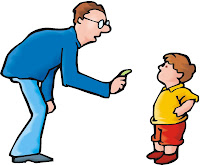Rewards and Discipline for Children on the Autism Spectrum

"I need help coming up with some effective ways to discipline a 5 year old with high functioning autism. What we are currently doing is obviously not working." One of the most difficult challenges in dealing with ASD level 1 or High-Functioning Autism is determining how to reward the child when he has done a good job and how to discipline him when he exhibits an undesirable behavior. Some moms and dads of such children are often reluctant to use any form of discipline, and the usual reward systems don’t often work. Many kids with ASD don’t respond as well to praise or hugs as other kids do. Instead, they might respond to things like a favorite treat, a favorite toy or preferred music as a way of showing them they’ve done something good. While the natural parental response is to lavish their kids with praise, it may be over-stimulating to a youngster on the autism spectrum, and as a result, may not alter his or her behavior. It’s up to the parent to determine which thi


